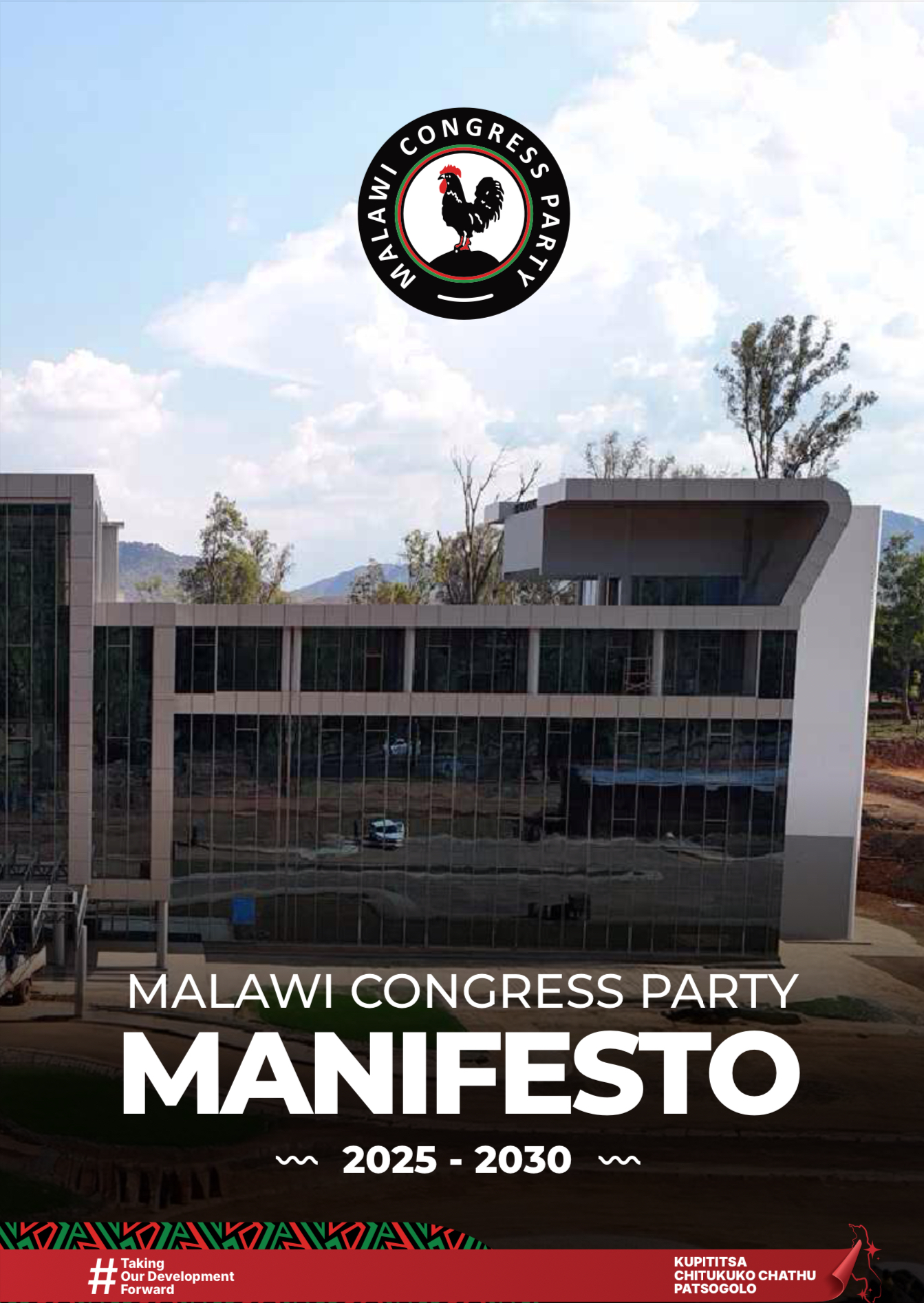

* As he dissects the Malawi Congress Party 2025 Manifesto launched today at Bingu National Stadium in Lilongwe
* The MCP-led government established a special Financial Crimes Division of the High Court (an anti-corruption court) in 2021 to fast-track corruption cases
* But corruption scandals — including allegations involving high-profile officials — made the goal to remain unmet
By Duncan Mlanjira
Economic & social justice influencer, Onjezani Kenani has analysed Malawi Congress Party (MCP) 2025 Manifesto that was launched today by President Lazarus Chakwera at Bingu National Stadium in Lilongwe with an emphasis on corruption that while the government aimed for a ‘corruption-free, efficient administration, the country has “witnessed corruption of the worst type”.

Advertisement
Chakwera pledges to govern with transparency, vision, and results if re-elected, adding that the five core pillars in the manifesto — food security; job & wealth creation; governance; reform; and rebooting the public service delivery strategic pillars — are designed to drive the realisation of the MW2063 national vision; the long-term national development strategy aimed at transforming Malawi into a wealthy and self-reliant nation.
He pledges to create 3 million job, particularly targeting the youth — whom he described as “the engine of national progress and under wealth creation, the President launched the Ten-Ten Makwacha Youth Challenge, a flagship initiative providing startup capital to young entrepreneurs, alongside plans to revamp the National Economic Empowerment Fund (NEEF).
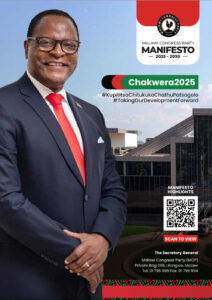
On governance reform, Chakwera proposes scrapping off the appointment of city chief executive officers (CEOs) by instead empowering residents to elect city mayors, promoting accountability and community representation.
Chakwera also pledged to restructure government ministries and reduce cabinet inefficiencies by integrating digital technology and streamlining public sector systems.
The most ambitious promise was the introduction of future accounts for every newborn child, where the government will deposit K500,000 accessible when they turn 18-years — a measure aimed at ending generational poverty.

The following is how Onjezani Kenani looks at what the MCP-led Tonse Alliance promised in 2020, what it promises now, what it has achieved, which unfulfilled promises it recycles and which new promises have come up:
Governance and Public Administration
Fulfilled 2020 Promises: The MCP-led government made some attempts to improve governance. Notably, it established a special Financial Crimes Division of the High Court (an anti-corruption court) in 2021 to fast-track corruption cases.
President Chakwera also fulfilled his pledge to appear before Parliament for question time — he has done so five times, becoming the first president since 1994 (after Bakili Muluzi) to regularly answer MPs’ questions in Parliament.
The administration raised funding and autonomy for anti-graft bodies, for example amending the Corrupt Practices Act to remove the requirement for prior consent to prosecute, thus empowering the Anti-Corruption Bureau.
These measures, alongside a strict policy of suspending officials charged with corruption, underscore progress on the 2020 “rule of law” and anti-corruption promises.
Unfulfilled 2020 Promises: While the government aimed for a “corruption-free, efficient” administration, corruption scandals (including allegations involving high-profile officials) — this goal remains unmet.
Instead, we have witnessed corruption of the worst type, a free-for-all atmosphere for thieving. Not only did the government show disinterest in the fight against corruption, it took steps to destroy it.
The Director of Public Prosecution discontinued nearly all high-profile corruption cases without justification, and the Anti-Corruption Bureau Chief was arrested for fighting corruption.

Former ACB Director General Martha Chizuma
Now, a year after the government refused to renew her contract, the Bureau remains without a Chief, and arrests are limited to low-level offenders stealing chalk from primary schools.
Repeated in 2025 Manifesto: The new 2025–2030 manifesto doubles down on governance reforms that remained unfinished. It promises a comprehensive constitutional review within three years (e.g. to enable direct election of city mayors) and further electoral law reforms.
Anti-corruption efforts are re-emphasised: MCP pledges to amend laws for time-bound corruption trials, strengthen whistleblower protections, and conduct lifestyle audits of public officers.

The manifesto also proposes greater transparency – for example, Annual Constituency Development Reports by local councils and a “district-by-district” State of the Nation Address, so that every district’s progress is reported publicly each year.
These repeat and expand upon the earlier promises of accountability and transparency, indicating MCP’s intent to achieve in the next term what was not fully done in the first.
New 2025 Promises: The 2025 manifesto introduces fresh governance initiatives. A standout promise is to fully digitize all public services by December 2025, enabling citizens to apply for IDs, passports, licenses, and pay fees online for convenience.
The MCP also vows to bolster oversight institutions – for example, ensuring annual parliamentary scrutiny of Anti-Corruption Bureau progress and requiring all key agencies (Auditor General, Ombudsman, etc.) to submit regular performance reports.
Another new commitment is to enforce a 50:50 gender balance in public appointments by strengthening the Gender Equality Act – building on progress made (the first term achieved a legally compliant 60:40 gender ratio in public appointments).
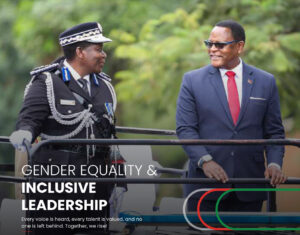
Economy and Jobs (including Agriculture)
Fulfilled 2020 Promises: MCP’s headline economic promise – to create jobs – was not delivered, though to give MCP zero would be unfair, so we will say it got partially delivered. We have seen an unprecedented hiring in the Ministry of Health, where nearly 20,000 workers were recruited in the last five years.
The administration claims it not only met but exceeded the “1 million jobs” pledge, creating about 2.4 million formal jobs since 2020, but in the absence of independently verifiable data, this is hard to believe.
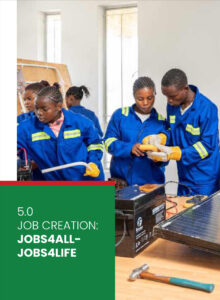
Workers saw direct benefits as well: the government doubled the minimum wage from MK25,000 to MK50,000 per month effective January 2021, and raised the income-tax-free PAYE threshold from MK45,000 to MK100,000, giving low earners more take-home pay.
In agriculture, the promised universal farm input subsidy was rolled out as the Affordable Inputs Programme – by 2022/23, it reached 3.7 million smallholder farmers with subsidised fertilizer.
The legalisation and promotion of industrial hemp also moved forward: Malawi legalised medicinal and industrial cannabis in 2020, enabling a new hemp industry as pledged.
Additionally, the government took steps to revitalise agricultural marketing; for example, it began restructuring ADMARC (the grain marketing board) and, by 2023, closed and reorganised it to improve efficiency —a process still underway.


There are always long queues at ADMARC depots
Unfulfilled 2020 Promises: Despite some successes, several major economic promises remain unmet. The ambitious goal of sustaining 6% GDP growth annually was not realised – growth has been modest, hindered by shocks (CoVID-19, global inflation), but also by a casual approach to governance.
MCP promised fertilizer price at K4,995, now it’s more than K100,000 per bag. The pledge to establish a dedicated youth and women’s bank for easy credit was not fulfilled in term — instead, the existing National Economic Empowerment Fund (NEEF) was used to give out loans.
While NEEF did disburse over K250 billion to 275,000 youth and women entrepreneurs, a new bank per se was not created.
MCP’s promise to end electricity blackouts by adding 1,000–2,000MW of power also fell short – Malawi still suffers power cuts, and total generation remains only a few hundred MW.



Existing hydro power stations, Nkula (top), Tedzani (centre) and Kapichira
The 2020 manifesto’s target of 2,000MW in 5 years was not met (the new Mpatamanga hydro project is only starting) and is carried over as an aspirational goal for 2030.
Additionally, the bold plan to change the fiscal year to align with the agricultural season was not implemented, and tax and interest rate policy “reviews” yielded limited tangible impact beyond the initial PAYE adjustment.
Repeated in 2025 Manifesto: The MCP acknowledges these gaps and re-commits to many in the 2025 platform. Job creation is again front and center – now with a promise of 3 million jobs by 2030 if re-elected.
Having not launched a new youth bank, the MCP now vows to transform NEEF into a K1 trillion Women and Youth Bank over the next five years. The Affordable Inputs Programme will continue, with improvements: the new manifesto pledges to make fertilizer “affordable and accessible to all,” including establishing a domestic fertilizer manufacturing plant by 2027 to reduce import costs.

Power sector goals are also reiterated – MCP now aims to reach 2,000MW capacity and 70% electricity access by 2030, explicitly building on progress made (they claim to have raised electricity access from under 10% to 25% during 2020–25).
The manifesto again emphasises revamping ADMARC: it outlines a massive MK3.3 trillion recapitalisation and reform plan to turn ADMARC into a reliable market for farmers (crop buying, storage, value addition).
In sum, many economic promises from 2020 that saw partial or delayed fulfillment – jobs, youth financing, inputs, energy, ADMARC – are being “carried over” as key commitments in the 2025–2030 agenda.
New 2025 Promises: The updated economic agenda also introduces new initiatives. One is a focus on industrialisation and exports – for example, MCP highlights the signing of the Single African Air Transport Market (SAATM) and visa-waivers for 100+ countries to boost trade and tourism.
The manifesto proposes a National Wealth Fund and other financing instruments to mobilise investment (including public-private partnerships for big projects). Another novel promise is developing “Mega Farms” and large-scale irrigation.

Indeed, 12 mega farms were established during the first term, and the next term will expand commercial agriculture to make Malawi food-secure and even a food exporter (“Make Malawi Feed Itself” initiative).
The MCP also plans to launch a National Infrastructure Fund to finance roads, ICT, and water systems in rural areas (the manifesto notes 1,000km of roads were worked on in the first term, and it aspires to do even more).
Social Development (Education, Health, Gender, Youth)
Fulfilled 2020 Promises: In education, MCP delivered on two major promises — it abolished the discriminatory university quota system and reintroduced the Junior Certificate exam (JCE).
Early in its term, the government ended the decades-old regional quota policy in public university selection – President Chakwera called the quota system “evil” and noted his administration deliberately scrapped it to ensure merit-based university admissions.
Consequently, since 2020, public universities have selected students purely on merit (with affirmative action only for gender, disability, and albinism). Likewise, the JCE, a Form 2 exam abolished in 2016, was brought back.
MANEB administered JCE exams again starting in 2021, with over 135,000 students sitting the revived exam that year – fulfilling MCP’s pledge to restore this academic benchmark as a way to monitor and improve secondary education performance.
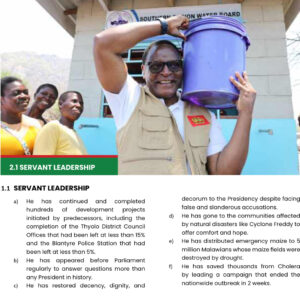
In youth empowerment, the government launched the promised National Youth Service (NYS). In July 2022, President Chakwera rolled out the NYS program, training 20,000 unemployed youths in vocational skills (agriculture, ICT, trades, etc.) and providing start-up capital through NEEF – a multi-faceted approach to tackle youth unemployment.
Other social-sector achievements include constructing over 1,800 new classroom blocks and giving scholarships/bursaries to 44,600 secondary students, as well as building 200 health posts and a National Cancer Center to improve healthcare access.
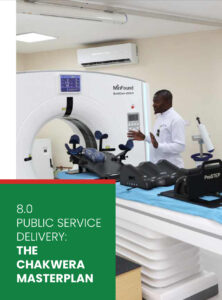
The administration also began addressing gender disparities: it complied with the Gender Equality Act requirement for at least 40% women in public appointments (achieving a 60:40 male-to-female ratio in many bodies), and for the first time, Malawi’s Cabinet and diplomatic appointments included a substantial number of women – a sign of progress on the 2020 gender equality commitments.
Unfulfilled 2020 Promises: In other areas of social development, progress was limited. The pledge that “no Malawian should die in hospital due to negligence or lack of supplies” remains aspirational – Malawi’s healthcare system still faces shortages of drugs and staff, and preventable deaths (e.g. during the 2022 cholera outbreak) tragically occurred.
The promise to end attacks on persons with albinism is only partly fulfilled: while government increased protection (building 140 houses for people with albinism and treating related crimes with greater severity), sporadic attacks continued, meaning the community still faces threats.
The plan to provide social cash transfers specifically for persons with albinism was not rolled out as a dedicated program (though vulnerable households, including those with albinism, did benefit from expanded cash transfers under Mtukula Pakhomo).

In education, apart from JCE, other promises saw partial action: for example, improving teacher conditions and computerizing schools – teacher salaries were adjusted and some digital learning initiatives began, but large gaps in teaching materials and ICT access persist.
The construction of a promised state-of-the-art national netball complex did not materialise by 2025 (no new national netball arena has been completed, aside from some renovations of existing courts).
Also, the envisioned “National Youth Service Corps” to provide universal vocational training for all out-of-school youth is funded at a modest scale (20k youths per year, as noted) and hasn’t reached every eligible youth, indicating room to grow.
In summary, many social promises – especially those requiring systemic change (health system quality, comprehensive youth employment, ending gender-based violence, etc.) – remain works in progress, with the 2025 manifesto acknowledging continuing challenges.

Repeated in 2025 Manifesto: The MCP’s 2025 blueprint recommits to unmet social goals with renewed strategies. Protecting people with albinism is again highlighted: the new manifesto includes a section on upholding the rights of persons with albinism and notes that only 67 of 100 planned houses for them were completed by 2025, implying the rest will be done soon.
It promises to ensure people with albinism can “live with dignity, free from discrimination” and to invest in livelihood support systems for them.
In education, MCP doubles down on quality improvements – pledging to hire and train more teachers, expand school infrastructure, and strengthen school feeding and sanitary programs (e.g. providing free menstrual hygiene kits to all schoolgirls to improve attendance, a new initiative in the 2025 manifesto).
The manifesto reiterates commitments to inclusive education: it aims to continue the free secondary school bursary program and increase student loan funding so that all deserving youth can access tertiary education.
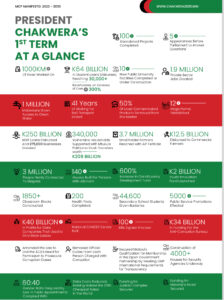
On youth empowerment, having launched the NYS, MCP now promises to scale it up and link it more with job creation programs – the goal is to create a “generation of productive youth” and the manifesto explicitly ties NYS training to accessible startup financing through NEEF (a synergy they began in the first term).
The Gender Equality Act enforcement is also reaffirmed: MCP plans to amend the Act to accelerate equal representation, and it pledges that at least 50% of public appointments will go to women going forward.
These repeated pledges signal that unfinished business – from albinism security to fully equitable education and gender parity – will remain front and center in MCP’s next term agenda.
New 2025 Promises: The 2025 manifesto introduces bold new social programs. In health, MCP proposes to create a National Health Services Fund (NHSF) – a domestically financed fund (via levies on alcohol, tobacco, fuel, etc.) to ensure steady funding for drugs and medical supplies.
This NHSF is a novel solution to reduce reliance on donors and is aimed at fulfilling the unmet promise of ending drug shortages. The party also promises to upgrade 50% of primary schools with feeding programs and sanitary facilities by 2030, to boost pupil attendance and health (this was not in the 2020 manifesto).


Another new commitment is expanding social protection: MCP plans to increase the coverage of cash transfers (building on the 340,000 ultra-poor households already supported under Mtukula Pakhomo) and to introduce targeted programs for the elderly and people with disabilities.
In the realm of youth and sports, the manifesto promises to construct more community technical colleges and sports facilities in every district (learning from the netball complex delay).
Additionally, MCP is focusing on women’s empowerment in a new way – for instance, it promises to establish a fund for female entrepreneurs and to amend laws to criminalize sexual harassment more strongly, ensuring women and girls can thrive.
Infrastructure and Security
Fulfilled 2020 Promises: The MCP government made some strides in infrastructure development, though more in quantity than the full “doubling” vision. By 2025, it had worked on 1,000km of roads (rehabilitations and new constructions) and built Malawi’s first ever six-lane highway (the dual carriageway in Lilongwe), adding 18km of dual roads – which they point out is double the distance of dual carriageway built by the previous two administrations combined.
Some long-stalled projects were completed – the manifesto reports 100 previously abandoned projects finished under Chakwera, though these are not independently verified.
On security, the government started constructing houses for security agencies (police, military, immigration). Out of a planned 10,000 houses, less than 700 were underway by 2025.

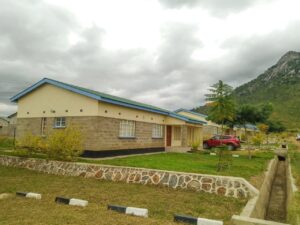
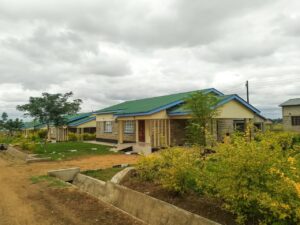
Also, the MCP administration beefed up border security somewhat – it operationalised the new Makanjira border post (funding for it was secured) and increased patrols to curb smuggling.
Apart from that, Malawi’s military capacity saw a boost with new equipment acquisitions (e.g. patrol boats for Lake Malawi) and active participation in international peacekeeping, aligning with the promise to strengthen the military for all domains.
Unfulfilled 2020 Promises: Despite these efforts, many infrastructure promises remain only partially fulfilled. The grand plan to establish modern bus terminals in every district. And while a few city bus depots are being upgraded, most districts still lack modern bus terminals.
The pledge to prevent foreign ownership of land and repossess idle land saw limited action; no new law outright banning land sales to foreigners was passed, and only a handful of improperly allocated estates were reclaimed.
Urban planning enforcement improved marginally (some city master plans were developed), but issues like unplanned settlements persist, meaning the 2020 promise of strict urban zoning and quality standards is far from achieved.
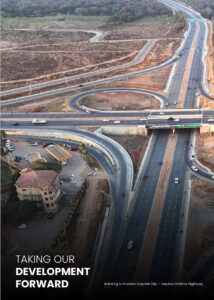

On infrastructure expansion, the goal to double the paved road network, build new airports, bridges, and schools was overly ambitious – while roadworks progressed, the network did not double, and planned new airports (e.g. an international airport for the North) remain on paper.
In energy infrastructure, as noted, the target of 2,000MW generation capacity was not met, and thus reliable electricity supply is still an issue (blackouts have not been “dealt with in the first year” as promised).
On security, the vow to stop all attacks on people with albinism “immediately” proved difficult – incidents, though reduced, did occur into 2021–2022, and full sense of security for persons with albinism is not yet attained.


The plan to build a new Police Academy did not materialise; police training colleges did receive minor upgrades, but a dedicated new academy with advanced crime labs, etc., was not built. Similarly, increasing police presence in every rural community is an ongoing effort – recruitment of additional officers happened, yet many areas remain under-policed.
Repeated in 2025 Manifesto: The MCP’s new manifesto refines and reiterates many of these infrastructure and security aims. Instead of every district, it now prioritizes constructing international-standard bus terminals in major cities (Lilongwe, Blantyre, Mzuzu, Zomba) and key border towns, through public-private partnerships.
It also promises to rehabilitate all existing bus depots nationwide by 2026 – effectively renewing the transport infrastructure pledge in a more realistic form.
The commitment to electrification is restated, with a concrete strategy to pursue an energy mix (solar, hydro, imports) to reach 2,000MW and connect 70% of the population to power by 2030.
Recognising that land reforms lagged, the MCP again emphasises land ownership for Malawians – the 2025 plan includes completing the digitisation of land records and enforcing land use conditions so that idle leased land can revert to government (in spirit, carrying forward the 2020 “repossess idle land” promise).

On urban development, the manifesto vows to institute stricter building codes and complete urban planning frameworks for all cities to manage growth (a continuation of the earlier pledge).
Security commitments are also renewed: MCP pledges to modernise the police and military with better training and equipment. For instance, it plans to introduce mobile courts to improve justice access in rural areas and prisons, and to strengthen community policing to curb crime – acknowledging that safety concerns persist.
The goal of equitable diplomatic appointments is reiterated as well, with MCP promising to maintain meritocracy and gender balance in foreign missions (building on its first-term record).
New 2025 Promises: The MCP is also bringing new ideas to the table in infrastructure and security. One notable new promise is the creation of a National Infrastructure Fund for Local Transformation, aimed at mobilising innovative financing (bonds, PPPs) to fund big projects like roads, irrigation and housing at the local level.
They also propose an ambitious Digital Infrastructure drive: completing the fiber backbone and making broadband internet accessible and cheaper (the manifesto boasts Malawi became the 29th cheapest data-cost country after reductions during Chakwera’s first term, and promises further ICT investment).


Advertisement
In security, a fresh pledge is to establish specialised units for cyber-security and anti-trafficking, given emerging threats. MCP even mentions deploying mobile court caravans (magistrates on circuit) to bring justice to remote areas – an innovation to strengthen rule of law at community level.
On the foreign policy front, a new element is economic diplomacy: the next MCP government commits to opening new embassies in strategic countries and aggressively courting trade and investment opportunities abroad – a shift from just political appointments to using diplomacy for economic gain.
Additionally, learning from climate disasters, the manifesto promises climate-resilient infrastructure (e.g. upgrading roads, bridges with climate-proof designs, and constructing more flood control systems).
These new promises — a blend of financial innovation, technology, and climate adaptation — were not explicitly in the 2020 plan.

